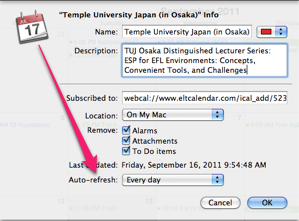Fukuoka JALT:
Two presentations: one on needs analysis and another on demotivation
Date: Sunday, February 25th, 2007 Time: 2:00 PM - 5:00 PM
Speaker: Keita Kikuchi, Waseda University
Description:
A needs analysis study of students in a college English language program
Although needs analysis (also called needs assessment) is claimed to be a critical part of the process of curriculum planning in second language learning (Brown, 1995; Richards, 2001), there are not so many published studies on this topic. In 1994, in his overview of needs analysis studies, West (1994) stated that there have been only a handful of needs analysis studies in the last 25 years. However, in the past decade, there has been an increase in these kinds of studies. For instance, there have been quite a few articles concerning the identification of students?f needs in English programs in Japanese university classrooms published through college in-house publications (e.g., Busch, et al, 1992; Kumazawa. 2003; Kusanagi & Kumazawa, 2004; Tachiki, 2002).
This paper provides a report of a recent needs analysis conducted for the program at one campus of Japan's largest universities. Based on the questionnaire used in Widdows & Voller (1991), 100 item questionnaires were constructed. Responding to the questionnaire, 434 students were asked their views on their (1) English learning and teaching styles, (2) main objectives for studying English, (3) perceived classroom learning needs, (4) plans to study English in the future, (5) preferences concerning classroom materials, (6) attitudes towards assessment/evaluation, and (7) topics that students are interested in. Results from the needs analysis study concerning these areas revealed both the successes and failures of the curriculum to satisfy the expectations and desires of students and provided valuable insight into the direction further curriculum development must take. In this paper, the summary of the study and the future direction of such needs analysis studies also discussed.
What can teachers do to avoid students getting demotivated?: Perspectives from recent survey studies.
Student demotivation is relatively new topic to explorer in L2 motivation studies (Dornyei, 2001). Guided by Dornyei (1998), which found nine salient factors regard to demotivation, interview guides and questionnaires were developed in order to find demotivating factors in Japanese high school English classrooms in this study. Five college students attended two private universities and one public university shared their views toward the demotivation in the interviews. Forty-two students at a public university responded to the questionnaires mainly open-ended response questions. Through qualitative analysis using matrices (Brown, 2001; Huberman & Miles, 1994; Lynch, 1996), five factors were found: (a) individual teacher behavior in classroom, (b) grammar translation method used in instruction, (c) tests/university entrance exam related issues, (d) memorization nature of the class/vocabulary learning related issues, and (e) textbook/reference book related issues. Based on the finding from this study as well as the follow-up study conducated recently (Kikuchi and Sakai, in preparation), the suggestions for language classrooms in other contexts were made and specific strategies for teachers to avoid demotivating students were discussed. After the presentations, active discussion on students?f demotivation in participants?f context is welcomed.
Keita Kikuchi is a visiting lecturer at Waseda University, International Liberal Studies, Tokyo. He holds an M.A. in ESL from the University of Hawai?fi at Manoa. His research interests include curriculum development for EFL programs in Japan and second language acquisition, especially individual differences.
Organization: Fukuoka Chapter of the Japan Association for Language Teaching (Fukuoka JALT)
Cost: JALT Members: free
Non-members: 1,000 yen
Venue: Fukuoka Jo Gakuin Tenjin Satellite Campus (9F), Tenjin 2-8-38, Chuo-ku, Fukuoka-shi map
Location: Fukuoka City, Fukuoka Prefecture, Japan
![]() Add this to iCal
Add this to iCal
![]() (Need help?)
(Need help?)
![]() Add to Outlook
Add to Outlook
![]() (Need help?)
(Need help?)
Contact Fukuoka JALT
Website: fukuoka.jalt.org
Email QR Code:








